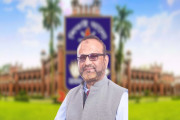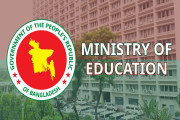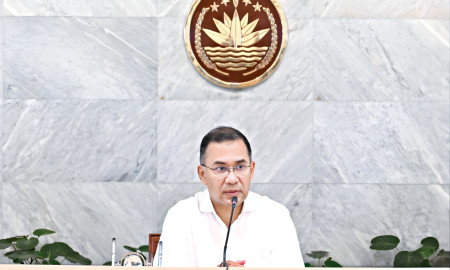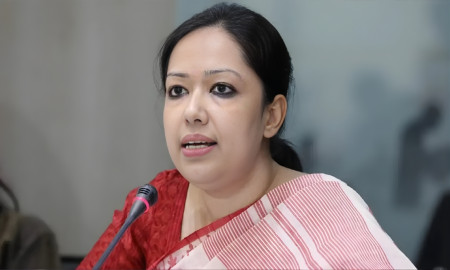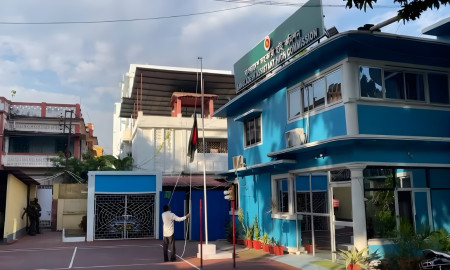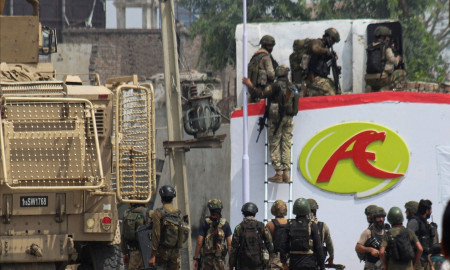Mother Parties’ ‘Lies and Loose Talk’ Embarrassing Chatra Dal, Shibir
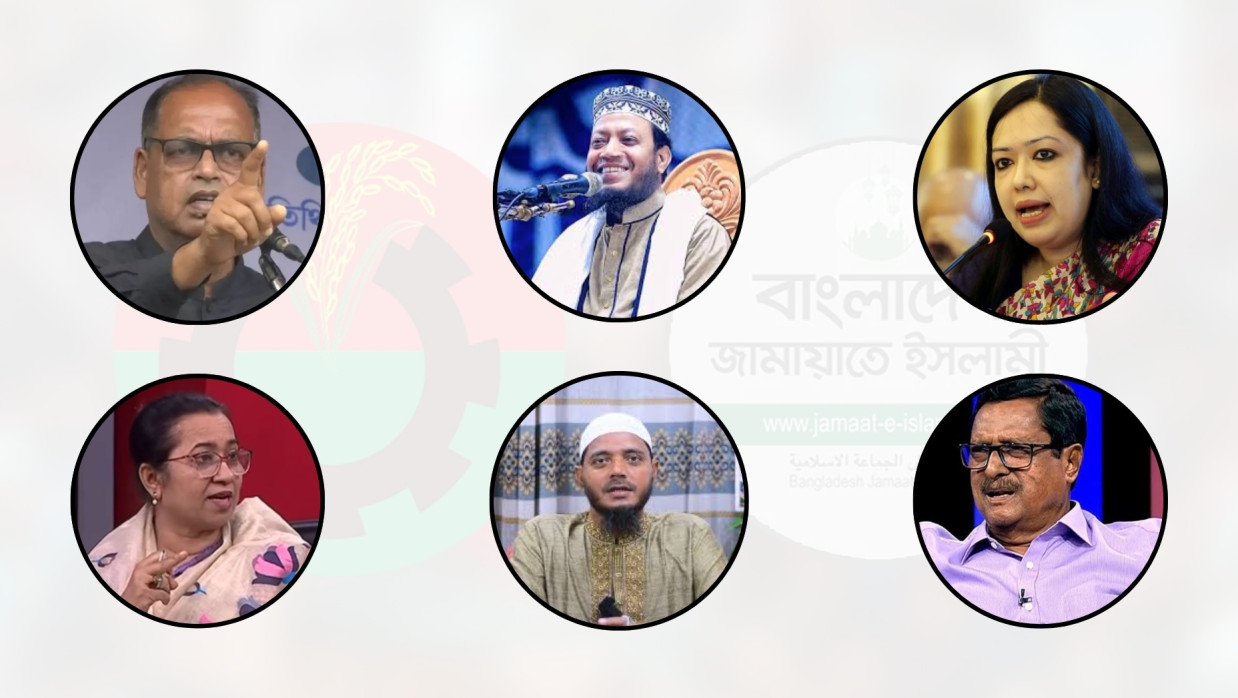
The barrage of reckless and inflammatory remarks from top leaders of Bangladesh’s political parties has put their affiliated student organizations in an awkward spot. In particular, the controversial and misleading statements by leaders of BNP and Jamaat-e-Islami are causing a backlash that is impacting their student wings, Chatra Dal and Islami Chhatra Shibir, respectively.
As a result, even members of these student organizations, despite being part of the same political fold, are criticizing their parent parties’ leaders. Some are even engaging in virtual spats, taking jabs at each other, which many fear could disrupt the peace process on university campuses.
It is learned that during the Awami League’s tenure, its leaders’ frequent misleading and arrogant statements often sparked criticism. Ultimately, in July 2024, Awami League President and then-Prime Minister Sheikh Hasina enraged people across all walks of life by labeling quota reform protesters as “Razakar’s descendants.” This led to a historic uprising by students and the public, ensuring her downfall.
While this created a sense of hope among the masses, in the absence of Awami League post-August 5, political leaders have continued their “false,” “reckless,” and “provocative” statements, attacking each other. This has left students and the general public embarrassed. Even party members are frustrated with those making such reckless remarks, citing the broader interests of their parties.
Analysts point out that student organizations are often overly dependent on their parent parties, causing both positive and negative impacts to trickle down to them. This also fuels divisive and hateful politics. However, the negative impact is not solely due to the statements of parent party leaders.
On November 19, a video of Jamaat-nominated Kushtia Sadar MP candidate and prominent Islamic speaker Mufti Amir Hamza went viral on social media. In it, he made false and fabricated claims about the prohibition of azan at Dhaka University’s Haji Muhammad Muhsin Hall during Awami League’s rule. This sparked outrage among university students. His remarks also led to comments implicating Shibir. In response, Chatra Dal held a press conference at Muhsin Hall to protest.
In the viral video, Amir Hamza is seen saying, “For 16 years, the oppressors did not allow azan at Dhaka University’s Muhsin Hall. They said it would disturb Chhatra League brothers’ sleep, so Fajr azan was banned. After Shibir’s panel won DUCSU, azan began the very next day, Allahu Akbar.”
Following the backlash, Chatra Dal at Muhsin Hall held a press conference demanding condemnation of Mufti Amir Hamza’s statement and a public apology. Hall Chatra Dal’s Member Secretary Monsur Rafi said, “For his dirty and false remarks, Amir Hamza must publicly apologize. We demand that the hall administration formally condemn this falsehood and take appropriate action to ensure he apologizes immediately.”
During the press conference, Chatra Dal was seen criticizing Shibir. Hall Chatra Dal Convener Abu Zar Gifari Ifat said, “We’ve seen before that the GS of Muhsin Hall in the DUCSU election admitted to being part of Shibir. Their attempt to label general candidates as Shibir and take credit across the country will not be tolerated.”
On the other hand, Rafe Salman Rifat, an organizer of Up Bangladesh and former president of Dhaka University’s Shibir, strongly condemned and protested Mufti Amir Hamza’s remarks about Muhsin Hall. In a post on his verified Facebook account on Friday night, he wrote, “As a former student of Dhaka University, I strongly condemn and protest Mufti Amir Hamza’s absurd and untrue statement.”
Recently, Dr. Shafiqul Islam Masud, a central Majlis-e-Shura member, central working council member, and secretary of Jamaat-e-Islami’s Dhaka South unit, made incoherent remarks about Hazrat Umar (RA). He said, “Before accepting Islam, what was Umar (RA)? He was the most despicable person, an animal. So, when a woman saw him, she started trembling in fear and tried to save her honor by offering jewelry.” This triggered widespread discussion and criticism on social media.
On Thursday (September 18), during a talk show on a private TV channel, BNP’s Assistant Secretary for Self-Reliance Affairs and former MP Nilufar Chowdhury Moni called Chhatra Shibir the “helmet brigade” and claimed they were responsible for the killing of BUET student Abrar Fahad. She said, “After the current government came to power, people called it an NGO-run government. Now it has transformed into an interim Jamaat government. This government is surrounded by Jamaat, that’s what I’m trying to say.”
She added, “Jamaat’s extortion is like that of the helmet-wearing Shibir. We used to call Chhatra League the helmet brigade, but they weren’t like that. It was actually Shibir, secretly carrying out these acts. If I give one proof: who killed Abrar? Who were the lawyers for the accused? It was Shishir Monir. You understand who the lawyers for the accused were. Then you know who killed him.” This statement sparked significant outrage among netizens.
Last August, BNP Chairperson’s Advisor Fazlur Rahman faced massive criticism for calling the July 24 revolutionaries “dark forces” and their organizers “Razakar’s children.” Protesters across the country burned his effigy and held public shoe-throwing demonstrations.
Earlier, in a talk show, Fazlur Rahman claimed, “Those who caused August 5 are dark forces, and those dark forces are Jamaat-e-Islami. Their vanguard is Islami Chhatra Shibir. Sarjis Alam and others who acted in it, the actors of August 5—I don’t want to call them leaders anymore, I’ll call them actors.”
In response to Hasnat Abdullah’s claim that “BNP runs on Awami League’s money,” BNP Vice Chairman Shamsuzzaman Dudu, in a discussion on May 20, said, “If BNP leaders urinate together, the torrent of that urine will wash you away to the Bay of Bengal. Don’t say things you can’t take responsibility for. If BNP just spits in response to your allegations, you’ll disappear in that spit.”
His remarks led to widespread criticism and trolling on social media. Additionally, another BNP Vice Chairman, Barkatullah Bulu, raised questions about interim government chief Dr. Muhammad Yunus’s religious beliefs. On June 5, BNP issued notices warning both leaders.
On September 17, BNP’s Assistant International Affairs Secretary Rumeen Farhana said, “BNP didn’t want the DUCSU election; it was imposed on us.” Sharing a photo card of this comment, Dhaka University Chatra Dal’s Sports Secretary and DUCSU candidate for Student Transport Affairs, Md. Saif Ullah (Saif), wrote on Facebook, “Because of people like Rumeen Farhana, our situation on campuses is becoming deplorable day by day. Your words keep putting us in trouble. We’ve fought repeatedly to strengthen our position. Those of us doing politics at Dhaka University have to answer for every incident across the country.”
Addressing Rumeen Farhana, he said, “Dear Rumeen Farhana, please keep quiet and let us do our politics. If you can’t say constructive things on talk shows, stop going to them. You speak whatever you want without knowing the ground reality. Stop now; you’ve already damaged the environment enough, don’t put us in more trouble.”
He added, “BNP’s Acting Chairman Tarique Rahman was the most sincere about DUCSU. You’re not bigger than him. So, stop your gossip and focus on your own politics. Let us do our work.”
In the comment section of Saif’s post, Rahat Sikdar, a student of Dhaka University’s Japanese Studies Department, wrote, referring to Fazlur Rahman, “Fazu Pagla and Rumeen Farhana are causing the most damage to Chatra Dal. Chatra Dal’s panel had enough acceptability and hype.”
Last August, Rumeen Farhana called Hasnat Abdullah, a key organizer of the National Citizen Party’s southern region, a “beggar’s child,” sparking nationwide criticism. Earlier, Hasnat had labeled Rumeen Farhana as “BNP’s Awami League affairs editor.”
Dhaka University’s Chhatra Shibir General Secretary and DUCSU AGS Mahiuddin Khan told *The Daily Campus*, “Structurally, the relationship between BNP and Chatra Dal is different from ours with Jamaat. We make our own decisions, and they make theirs. There’s some cooperation on certain issues, but it’s not like we blindly accept what Jamaat or its leaders say.”
He added, “We evaluate their statements for truth, reality, and objectivity based on our organization’s policies. Our members have protested Mufti Amir Hamza’s misleading statement. Shibir issued a statement against a Jamaat leader in the Chittagong University area. So, it’s embarrassing for us when propaganda links our organization to their statements.”
He further said, “Students shouldn’t judge us for things we don’t endorse. They should judge us based on our work.”
Dr. Sajjad Siddiqui, Chairman of Dhaka University’s Peace and Conflict Studies Department and political analyst, told *The Daily Campus*, “Student organizations shouldn’t blindly follow their parent parties but should present student-centric politics and timely narratives. In our country, student organizations are overly dependent on their parent parties, so both good and bad impacts affect them. In some cases, this even encourages divisive and hateful politics.”
He added, “It’s not entirely accurate that student organizations are tainted only by their parent organizations’ reckless remarks. Broadly, they are judged by students based on their own good and bad actions.”

